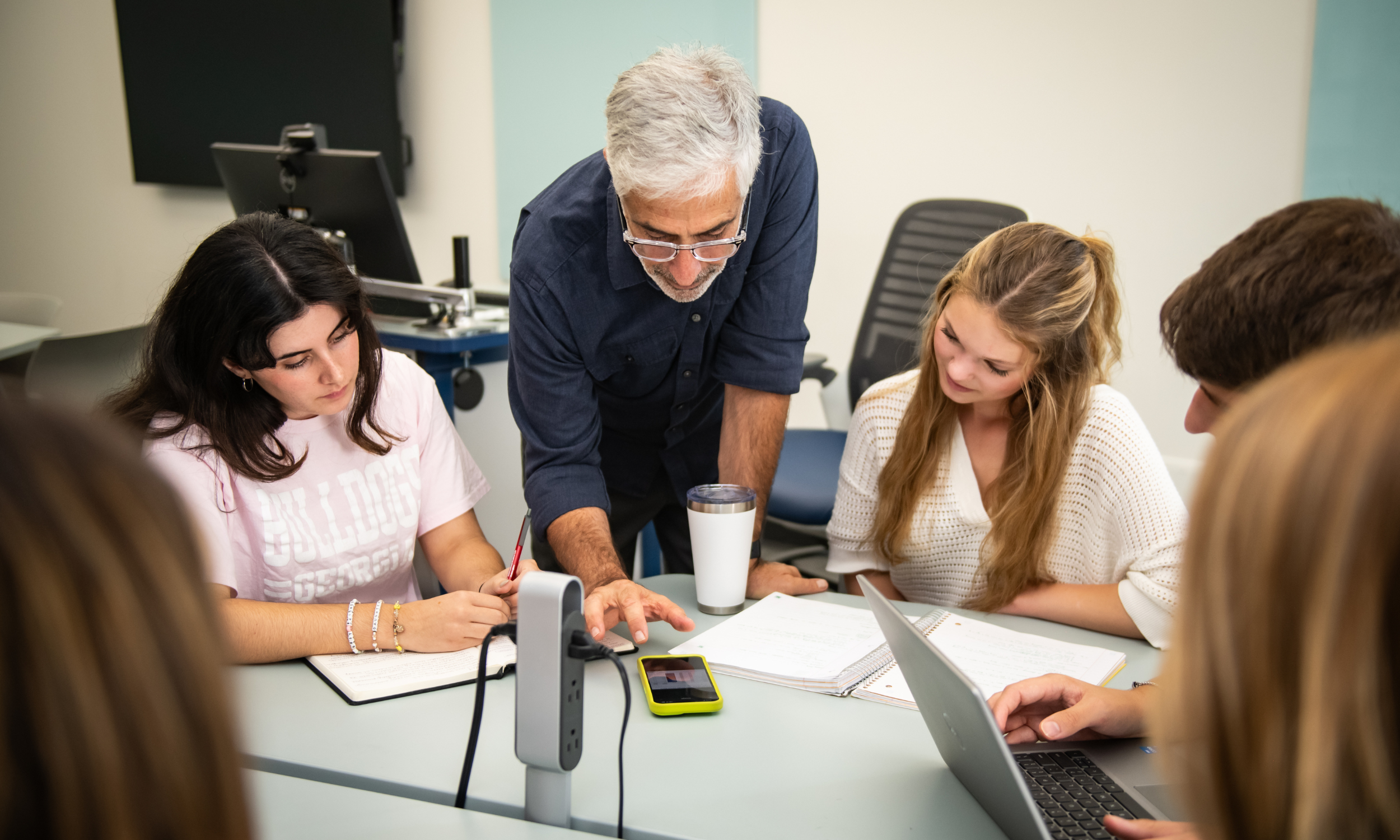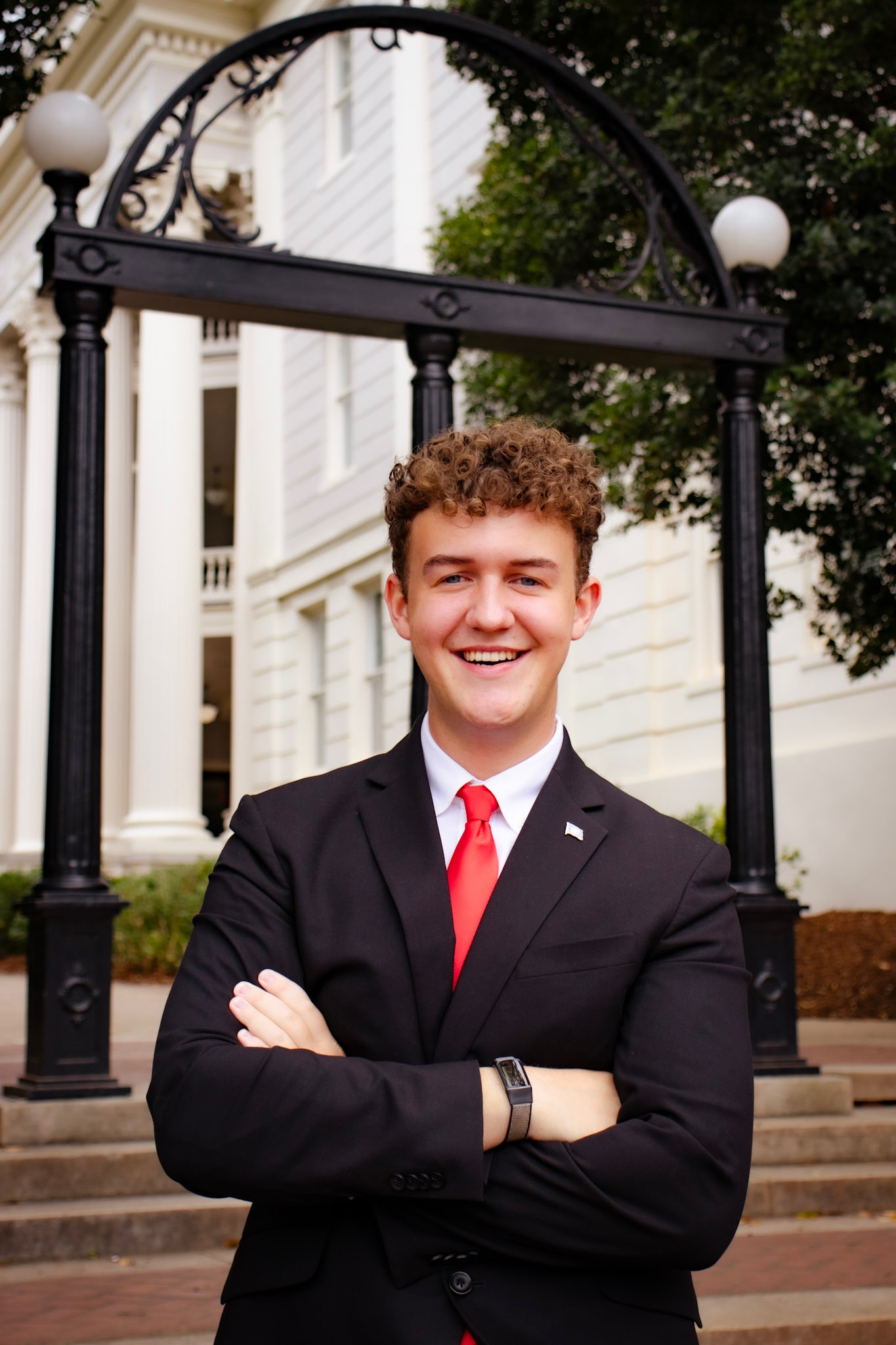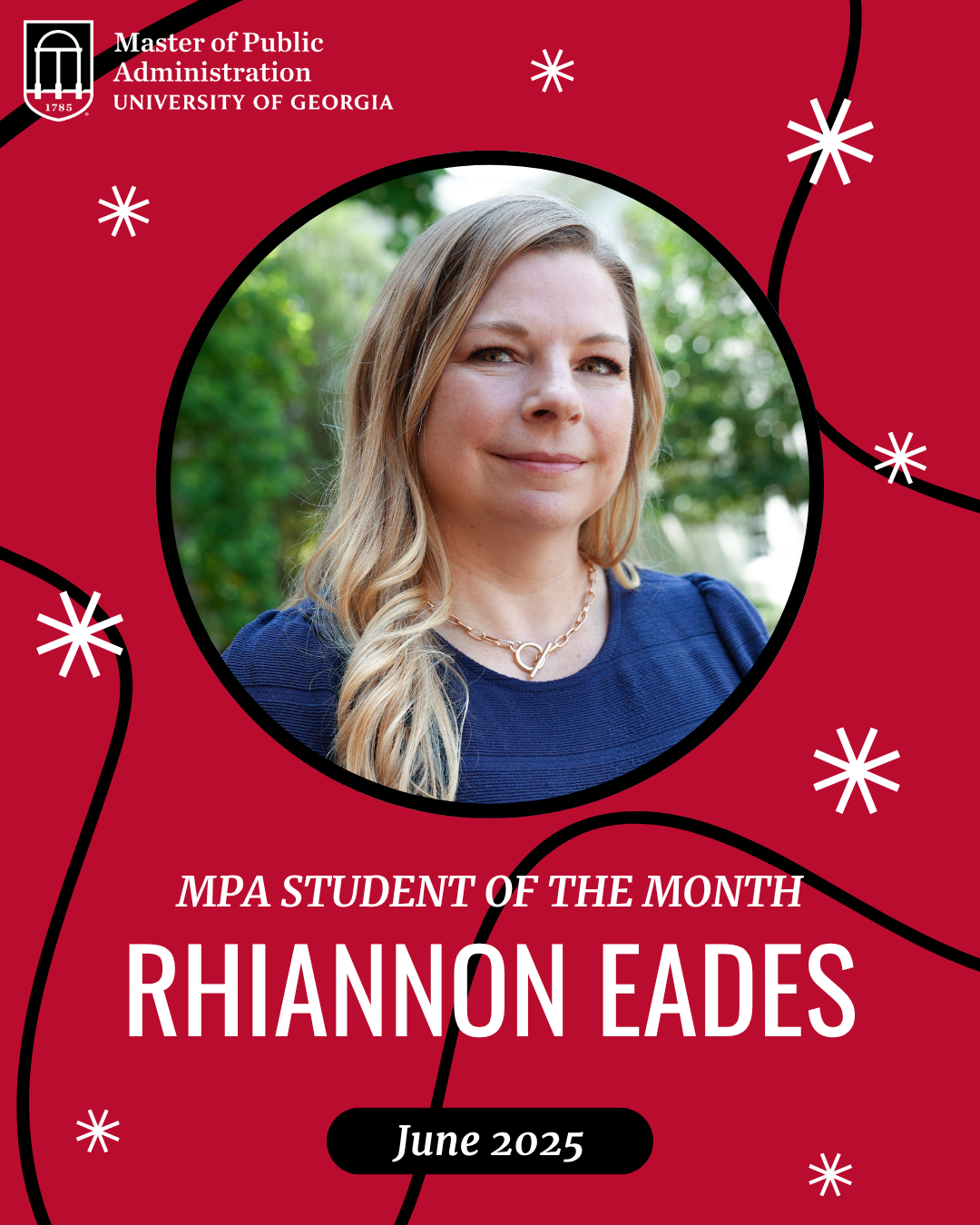
By: Rachael Andrews
Hannah Kelley, a graduate student in the Master of International Policy (MIP) program, has recently accepted a prestigious internship with the United States Department of Commerce. Hannah’s journey through SPIA has provided her with the skills and resources needed to achieve success in her chosen field, even if she was unsure about her path for a while.
As an undergraduate student, Hannah was approached by her advisor to consider the Double Dawg program – a program in which UGA students can pursue a graduate degree while still in their undergraduate course of study. Hannah decided on the MIP because of what she learned in her International Affairs coursework.
“My skill set lies with how communities engage with each other, especially communities that come from different cultures or ideologies, and you really find that in the international arena,” Hannah explains.
“I was involved in some nonprofit work in high school and attended a number of United Nations conferences, and really enjoyed it,” Hannah goes on. She brought that experience with her to college, chose SPIA, and never looked back.
“I resonated with the passion [in SPIA] as well as the subject matter, and the dynamics that you can see play out, both in history and in current events,” she says.
Hannah’s remote internship at the Atlanta Office of the Department of Commerce, in the U.S. Commercial Service’s International Trade Administration, offers her a unique opportunity to develop skills that she otherwise might not get to develop.
“We want our students to leave UGA with as much hands-on, real-world experience as possible,” says Dr. Justin Conrad, the Director of the Center for International Trade and Security (CITS). Both the MIP program and the undergraduate Richard B. Russell Security Leadership Program (SLP) are administered by CITS. “This internship is a great opportunity for students, and Hannah is one of our best, so it’s a mutually beneficial arrangement.”
Hannah assists her lead senior international trade specialist with domestic export compliance in the Southeast. “I work directly with clients, conduct market research, and also do some other administrative tasks like updating the website, and creating and presenting education material,” She explains.
Hannah says that developing a practical skill set has been the most rewarding part of her internship thus far.
“It has been really eye opening to see that pretty much every government job is a little bit of PR, a little bit of HR, a little bit of everything,” she says. “I’ve learned so much about healthy time management and professionalism, as well as how to operate within systems that can be a bit cumbersome.”
Hannah says that her supervisor has helped her see how to overcome a number of challenges in the workplace. “I learn a lot from her, especially in how she navigates red tape and responds to challenges as a woman in the field,” she continues. “[She does so] with a lot of grace, grit, and efficiency, which is encouraging to see.”
“Aside from deepening my understanding of export compliance, She has taught me a lot about what it can look like to contribute and succeed as a professional woman, in an issue area that is largely dominated by men,” Hannah explains.
Hannah learned many lessons in her time at SPIA, but she places special emphasis on the importance of community. “Community reminds us that we are human and keeps us accountable to that humanity in our policy writing,” she says. Hannah saw that as a constant theme throughout her SPIA classes, though not always explicitly stated.
SPIA has offered Hannah mentors that have helped to guide her throughout her journey here. Dr. Maryann Gallagher – the new director of the SLP program – made a particular impression on Hannah as an undergraduate student.
“Aside from being extremely knowledgeable in the field, she makes herself accessible to her students to talk about careers or grad school. She’s honest, challenging, but also extremely supportive,” Hannah reflects.
Hannah also mentions Dr. Joshua Massey – director of the MIP program – and her undergraduate advisor, Jamie Clarke, as having made substantial impacts on her studies. “It’s hard not to list everyone in the department, honestly,” she says.
When asked if she has any advice for other SPIA students, Hannah draws on her own experiences. She urges them to connect with others in SPIA, and especially with the people whose lives may be affected by the policies they hope to develop.
“Look for opportunities that give you experience on the ground in the communities that you want to help,” she urges. “We need policymakers who are in touch with the communities they hope to serve, who are humble and willing to adjust their sails when their policies prove ineffective or harmful.”
“[Policy work] requires constant intentionality and reverential stewardship of one’s leadership position,” Hannah concludes. “It’s an exhausting dance between efficiency and impact, but that’s what has the capacity to make the world better.”








